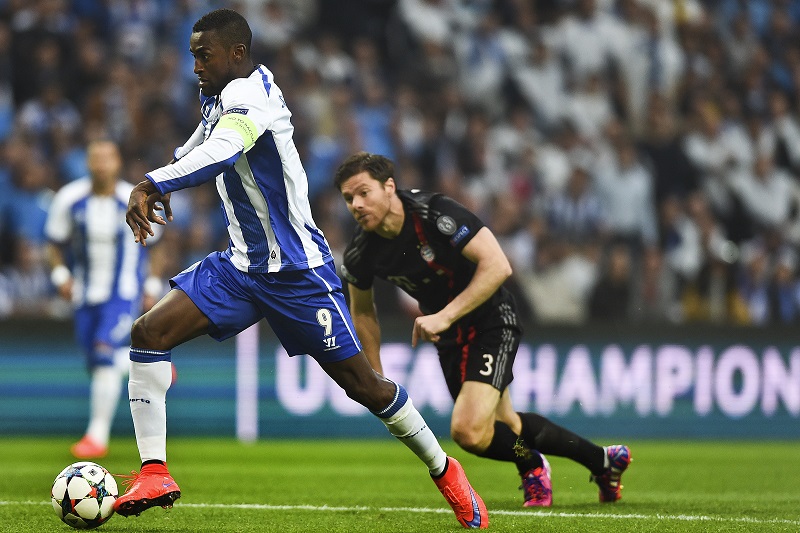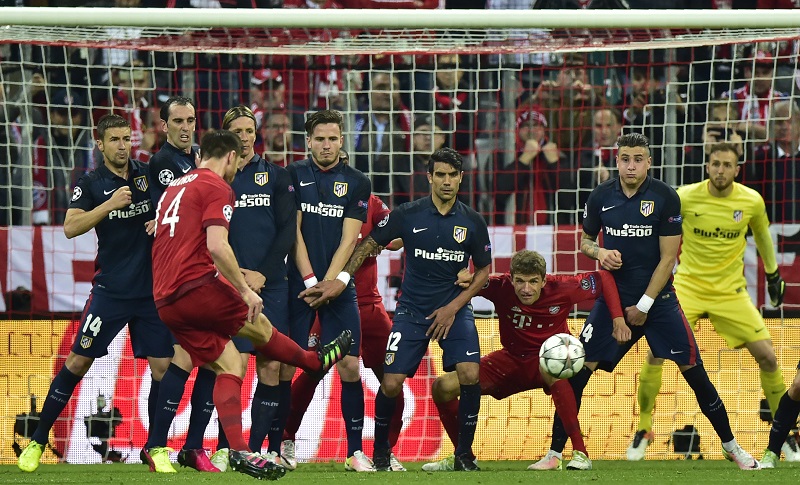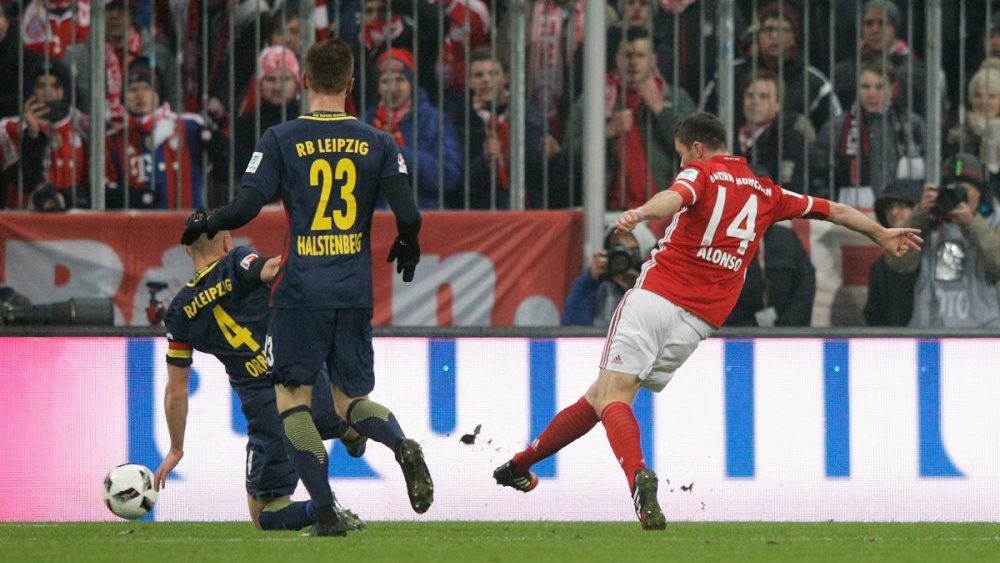Xabi Alonso – A legend hangs up his boots
For many it was somewhat surreal, since Alonso hadn’t just gained his legendary status at Liverpool, but was now also plying his trade for Real Madrid, sharing a stage with Sergio Ramos. The Spaniard, at the time 32 years of age, had just won the Champions League and was part of the national team that were reigning champions of Europe and had just been unseated as world champions.
The effect of the transfer on the media alone was huge. Alonso may not have had the big future of a Toni Kroos, but it ought to be clear straight away that to sign Alonso would be a shot in the arm for the club.
His first appearance, against FC Schalke 04, showed already how important he would be for the Rekordmeister. Every pass like an artist’s brush-stroke. His performance, despite substitution in the 68th minute, showed 91 touches, 91% pass completion and many spectacular diagonal and vertical balls.
Lived it. Loved it.
Farewell beautiful game. pic.twitter.com/1aSN7GGNzZ
— Xabi Alonso (@XabiAlonso) 9. März 2017
Now 35, he has just announced his intention to retire in the summer. His decision is indeed the right one. You can see the former national player struggling under pressure and against the ball.
Indeed, he was never the fastest player around, but it was noticeable too that he was getting slower and slower. In spite of that, Alonso will be able to look back on three superb years at Bayern, regardless of the dwindling game time.
How people cursed when the stylish midfielder had a catastrophic performance in Porto in April 2015. The calls for Schweinsteiger, who had left the previous summer, were loud.
But club, manager and players always knew: for a fit Alonso, it’s worth adapting.
Alonso the magical artist
Often the weaknesses of the two-time Champions League winner were talked to death. But Guardiola put things straight: “If we’d bought him to close down the opposition, we could forget about him. (…) We bought him to dominate the game.”
And so the Catalan put his director in the defensive midfield role. All others around him served to support the Spaniard and to make space for him. The hope was for Alonso’s strengths to be emphasised and for his weaknesses to be covered up.

(Image: Francisco Leong / AFP / Getty Images)
On average, Alonso played between 90 and 120 passes per 90 minutes at FC Bayern. Some were unspectacular, others just switching play, but almost all were important for the end product, for the paintings that Alonso traced with his feet.
The 35-year-old is a gifted deep-lying playmaker. He can read a game, recognise the rhythm and change it at the right moment. Even still today, as his wonderful career nears an end.
Berlin 2017: Bayern’s game is looking ponderous. Transitions from the first third of the pitch to the second are going smoothly, but they just can’t make it into the final third. In the 61st minute Ancelotti brings Xabi Alonso on for Joshua Kimmich.
Bayern’s game changes. Afterwards not many are aware, since Alonso isn’t directly involved in the equaliser. But his presence, and the way he changed the rhythm of the game, made a huge difference. His passes and movements pulled apart the Berliners from their formation and constantly found team-mates in dangerous zones.
Xabi Alonso was rarely injured, in most cases reliable and a genuine asset for FC Bayern. He was often written off, but even more often he reacted positively to criticism.
Before the Champions League semi-final second leg against Atlético Madrid in 2016, it was said that against teams like Atlético Madrid, Alonso wasn’t the man for the job. Guardiola disagreed and Alonso supposedly had his best 90 minutes in a Bayern kit.
And so the game went well for the Rekordmeister due to having a unique player in the number six role. An ingenious director. Alonso was the one who dominated the game and controlled Atlético’s tricky centre.
Outstanding moments in counter-pressing, vertical, pin-point balls into the heart of the opposition and a performance that deserved more than an unfortunate exit. And yet that’s how it is in football, and so the Spaniard begins one last run for FC Bayern.

(Image: John MacDougall / AFP / Getty Images)
Adiós at the right time
All that being said, all of the praise for his career and for his three years in Munich that were often underrated, it is absolutely the right decision to end his career now. Alonso is 35 and the games in which his weaknesses outnumber his strengths are increasing.
Nevertheless, he can and will continue to play an important role for Bayern. He still makes the right brushstrokes and uses the right colours to draw the outlines that culminate in a unique work of art.
World champion, two-time European champion, two-time Champions League winner, two time Super Cup winner, three league titles, four domestic cups and three domestic super cups – Xabi Alonso has won almost everything possible. The superlative career of a legend draws to a close.
The MiaSanRot editors are not just grateful for his great time in Munich, but would also like to wish him all the best for the future. Specifically, though, for the near future, as Alonso has the chance to add yet more highlights to his glittering career.




 March 10, 2017
March 10, 2017 


